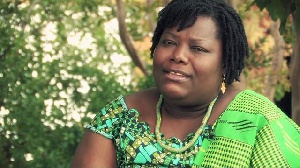The government has placed a temporary ban on adoption in the country in order to allow time for investigations and reform of current adoption procedures.
The ban, which was put in place in May this year, is due to expire in November. Nana Oye Lithur (Mrs.) the Minister of Gender, Children and Social Protection, who made this known to ‘The Finder’ in an interview in Accra, said adoptions were suspended because there had been several cases of abuse of the system.
She noted that some guardians in their desire to get their wards abroad push the children through the adoption process without taking the interest of the children into consideration.
The craze to live abroad is one major reason for the high incidence of adoptions.
Over 1,120 Ghanaian children have been adopted between 2010 and 2012. The majority of the adopted children are sent to the United States of America (USA) and Europe.
Out of the number, 800 children were adopted by foreigners, with the rest being adopted locally. “The Ministry has noted with concern a developing trend in the adoption of children in Ghana, which if not attended to will be greatly detrimental to the welfare of the children,” the Minister said.
She said the suspension is subject to cases which qualify as special or emergency, adding that such cases would be processed by the headquarters of the Department of social Welfare. Mrs. Lithur noted that the emergency cases involve special needs or medical conditions, cases in which the age of the child may adversely affect the outcome if delayed, and family based adoptions.
“Pending the moratorium, the Ministry of Gender, Children and Social Protection, in collaboration with stakeholders, including UNICEF is working together with a technical team to streamline and harmonies the adoption process,” she stated.
Mrs. Lithur explained that several strategies have been put in place to ensure the proper protection of children. She mentioned the introduction of the Care Reform Initiative (CRI) in 2008 to improve child protection in Ghana.
Other strategies are aimed at ensuring that institutions are well run to close down badly run homes and to find alternative care for children. Mrs. Lithur added that various activities have also been carried out, including the training of 256 Social Workers on adoption procedure, training children homes and orphanages, and forum for journalists on adoption.
Others are the formation of Committee on the Hague Convention as Sub-Committee of the Oprah and Vulnerable Children (OVC), the drafting of foster care regulations, recruiting and training foster caregivers and agreeing on a Central Authority.
On actions already taken, she said, “Officers have also been shortlisted in the regions who can undertake adoptions. “Three foreign adoption agencies have also been licensed to operate on pilot basis, and officers sponsored to The Hague, Ethiopia and South Africa to study the practice of adoption in those places,” she said.
General News of Wednesday, 21 August 2013
Source: The Finder













